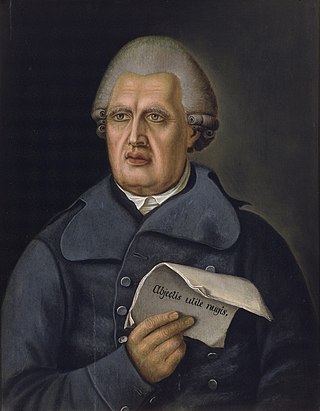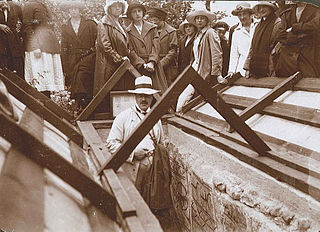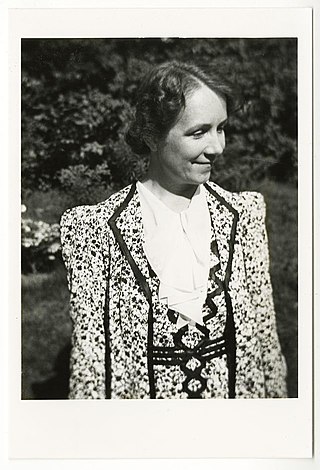
Lauri Olavi Honko (born in Hanko 6 March 1932, died in Turku 15 July 2002) was a Finnish professor of folklore studies and comparative religion.

Lauri Olavi Honko (born in Hanko 6 March 1932, died in Turku 15 July 2002) was a Finnish professor of folklore studies and comparative religion.
Honko was a disciple of Martti Haavio. His 1959 doctoral dissertation at the University of Helsinki was titled Krankheitsprojektile. Untersuchung über eine urtümliche Krankheitserklärung (Disease Projectiles: A Study of the Primitive Explanation of Disease) and developed a special typology for the analysis of ethnographic data in folk medicine. Here he put the Finnish folk tradition explanation of illness and healing into a global perspective and found distinct features and differences in geographical regions.
Honko's seminal work, Geisterglaube in Ingermanland (Belief in Spirits in Ingria) was very influential for Finnish folklorists because it set apart the old and new science of religion. In this work he used new insights from social anthropology, phenomenology of religion, social psychology and sociology. Honko also interpreted the experience of guardian spirits in Ingrian peasant society by developing a genre-analytic and role-model theory.
In Geisterglaube in Ingermanland he classified rituals into three main categories: rites of passage, calendrical rites, and crisis rites. Honko even stresses the importance of analyzing rituals within cultural context and the need to differentiate between small-scale and complex systems of belief.
In 1961 Honko became an assistant professor in folklore studies and comparative religion. In 1963 he was an associate professor in both subjects at the University of Turku. In 1971 he received a special seat. In 1996 he was named professor emeritus.
Lauri Honko also became the head of the Nordic Institute of Folklore (NIF) in Turku in 1972. From 1974 to 1989 he was president of the International Society for Folk Narrative Research and then also the editor of Folklore Fellows' Communications . He was the editor of Temenos from 1965 to 1969 and from 1975 to 1990, of NIF Newsletters from 1972 onwards, and of Studia Fennica from 1981 to 1989.
During the 1980s and 1970s, Honko compared popular traditions and developed a research methodology.

Edvard Alexander Westermarck was a Finnish philosopher and sociologist. Among other subjects, he studied exogamy and the incest taboo.
In Scandinavian folklore, the mylingar were the phantasmal incarnations of the souls of children that had been forced to roam the earth until they could persuade someone to bury them properly.
Finnish mythology is a commonly applied description of the folklore of Finnish paganism, of which a modern revival is practiced by a small percentage of the Finnish people. It has many features shared with Estonian and other Finnic mythologies, but also shares some similarities with neighbouring Baltic, Slavic and, to a lesser extent, Norse mythologies.
The folklore of India encompasses the folklore of the nation of India and the Indian subcontinent. India is an ethnically and religiously diverse country. Given this diversity, it is difficult to generalize the vast folklore of India as a unit.
In Finnish mythology, Ahti is a heroic character in folk poetry who is sometimes given the epithet Saarelainen.

Eino Sakari Kaila was a Finnish philosopher, critic and teacher. He worked in numerous fields including psychology, physics and theater, and attempted to find unifying principles behind various branches of human and natural sciences.

Henrik Gabriel Porthan was a professor and rector at the Royal Academy of Turku. He was a scholar sometimes known as The Father of Finnish History.

Antti Amatus Aarne was a Finnish folklorist.

Kaarle Krohn was a Finnish folklorist, professor and developer of the geographic-historic method of folklore research. He was born into the influential Krohn family of Helsinki. Krohn is best known outside of Finland for his contributions to international folktale research. He devoted most of his life to the study of the epic poetry that forms the basis for the Finnish national epic, the Kalevala.
Juha Pentikäinen is a Finnish professor in the Department of Comparative Religion at the University of Helsinki. With a field-work oriented approach to the study of religious traditions he is especially interested in the oral history of languages, religions and cultures.
The earliest mentioning of Estonian singing dates back to Saxo Grammaticus' Gesta Danorum. Saxo spoke of Estonian warriors who sang at night while waiting for a battle. Henry of Livonia at the beginning of the 13th century described Estonian sacrificial customs, gods and spirits. In 1578 Balthasar Russow described the celebration of midsummer (jaanipäev), the St. John's Day by Estonians. In 1644 Johann Gutslaff spoke of the veneration of holy springs and J.W. Boecler described Estonian superstitious beliefs in 1685. Estonian folklore and beliefs including samples of folk songs appear in Topographische Nachrichten von Liv- und Estland by August W. Hupel in 1774–82. J.G von Herder published seven Estonian folk songs, translated into German in his Volkslieder in 1778 and republished as Stimmen der Völker in Liedern in 1807.
Elements of a Proto-Uralic religion can be recovered from reconstructions of the Proto-Uralic language.

Kurt Ranke was a German ethnologist who specialized in the study of fairy tales.

Carl Wilhelm von Sydow was a Swedish folklore scholar. A professor at Lund University, he was a pioneer of folklore studies in Sweden and contributed to establishing systematic methods in the field.

Tietäjä is a magically powerful figure in traditional Finno-Karelian culture, whose supernatural powers arise from his great knowledge.
Honko is a Finnish-language surname. Notable people with the surname include:

Elsa Elina Enäjärvi-Haavio, also Elsa Eklund, (1901–1951) was a Finnish folklorist who carried out extensive research into folk poetry in the 1930s. As a result, in 1947 she was appointed docent of Finnish and folk poetics at the University of Helsinki. She was an influential member of many organizations, including the Finnish Federation of University Women, for which she represented Finland at the 30th anniversary of the International Federation of University Women in Switzerland.
Aili Annikki Nenola is professor emerita of the University of Helsinki. Her research specialty was folklore and she pioneered multidisciplinary and critical women's studies in Finland, designing the curricula and introducing courses at the University of Tartu. She later assisted in establishing the national curricula for women's studies, became director of the graduate program in women's studies at the Kristiina Institute, and secured accreditation of the field as a degree major. Nenola was also a participant in creating the curriculum of the Women's Studies Centre of Vilnius, Lithuania. From 1995 to 2006 she taught women's studies at the University of Helsinki and simultaneously served as the Dean of the Faculty of Humanities between 2004 and 2006. In 1999, Nenola was honored as a Knight, first class, of the Order of the White Rose of Finland and was elected to the Finnish Academy of Science and Letters in 2002.
The term loss of soul - In shamanism the term refers to the loss of human part of the life force, soul.

Krankheitsprojektile: Untersuchung über eine urtümliche Krankheitserklärung, by Lauri Honko, is a 258-page German-language book published as number 178 in the series Folklore Fellows’ Communications. The work originated as Honko's pro gradu (master's) thesis, originally composed in Finnish.